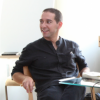About
Abstract: The geography of the 50th anniversary of 25 April is at the same time a research project, a project to disseminate scientific culture and a social and educational intervention project. In terms of research, the project is committed to exploring the variable geographies that have emerged from the territorially unequal socio-economic and socio-political dynamics that have taken place over these 50 years. The aim is to show how much the country has changed, presenting the diverse territorial mosaic that has been created, without losing sight of the fact that not all the territories may have changed in the way that would have been desirable. The purpose of this research is twofold: to commemorate and to reflect on the present and future of the democratic country that was inaugurated on 25 April 1974. The construction of the narrative is therefore rooted in seminal concepts of radical geography, such as social and spatial justice, in the tradition of Harvey and Soja, and explores the geographies of discontent and territories caught in the intermediate development trap. The project will identify, analyse and map fifty social, economic and political dynamics in order to produce maps at local and regional level. These will highlight the diversity of the matrices of change. Winning and losing areas are bound to emerge which, when confronted, can contribute to electoral “revenge”. Variable geographies of discontent provide opportunities for the emergence of neo-populist political movements. The design of territorially based policies that capitalise on the endogenous resources of places and take advantage of current transition trends (energy, green, digital, etc.) is a path to inclusion and territorial cohesion that should be explored.
With regard to the dissemination of scientific culture, it is important to disseminate the variable geography of the changes that have taken place in our territory over the last 50 years. It is essential to step up the dissemination of credible information to show the extent and quality of the positive dynamics. But it is also important for the collective conscience to reflect persistent forgetfulness. The dissemination of truthful information, transmitted in codes that can be understood by the general population, helps to combat neo-populisms. These are often fuelled by prejudice and fake news. Reflecting on our memories therefore strengthens us for the current and future challenges of economic, social, cultural, political and civic cohesion. Cohesion cannot just be a political objective; it must first and foremost be a socially desirable ambition. That is why the project has an important place in the process of media dissemination of knowledge based on the project's scientific methods. It is a way of empowering society to combat prejudice and fake news. In terms of socio-pedagogical intervention, based on the maps of socio-economic and socio-political dynamics drawn up, the project proposes to develop several school kits, structured according to active, student-centred methodologies, aimed at the 3rd cycle of primary and secondary education. The aim of these school kits is to implement a process of socio-educational intervention in schools in different regions, taking into account the diversity of territorial, social, cultural and ethnic contexts. The aim is to promote meaningful learning in which students take it upon themselves to create their own representations of the dynamics of the different issues analysed in this project, based on the cartograms provided. On the one hand, the aim is to stimulate and deepen essential skills in analysing and interpreting information and knowledge from credible sources, and thus making students aware of the use of reliable information and knowledge and contributing to combating the risk of believing in fake news. On the other hand, to give students the opportunity to take ownership of the dynamics that have taken place over these 50 years, through creative strategies for reinterpreting and creating new ways of representing knowledge, giving young people a voice and diversifying their readings and their creative and visionary capacities through the operationalisation of a youth creativity laboratory. In short, this project is designed to actively contribute to achieving the objectives of 25 April, reflecting on the past in order to build the future. It provides access to information and knowledge about the dynamics of the last 50 years, empowers people through the development of meaningful educational experiences and builds bridges of intergenerational learning.
Final beneficiaries/target population: Secondary schools; Associations of Municipalities and Regional Coordination Commissions; Local Authorities in Northern Portugal.
Timetable: November 2024 - November 2025
Team: Teresa Sá Marques (Investigadora responsável), Catarina Maia, Ana Isabel Martins, Diogo Ribeiro, Fátima Matos, Gonçalo Santinha, Hélder Santos, Isabel Cristina Martins, João Queirós, Jorge Malheiros, Margarida Queirós, Mário Vale, Miguel Saraiva, Paula Guerra.



